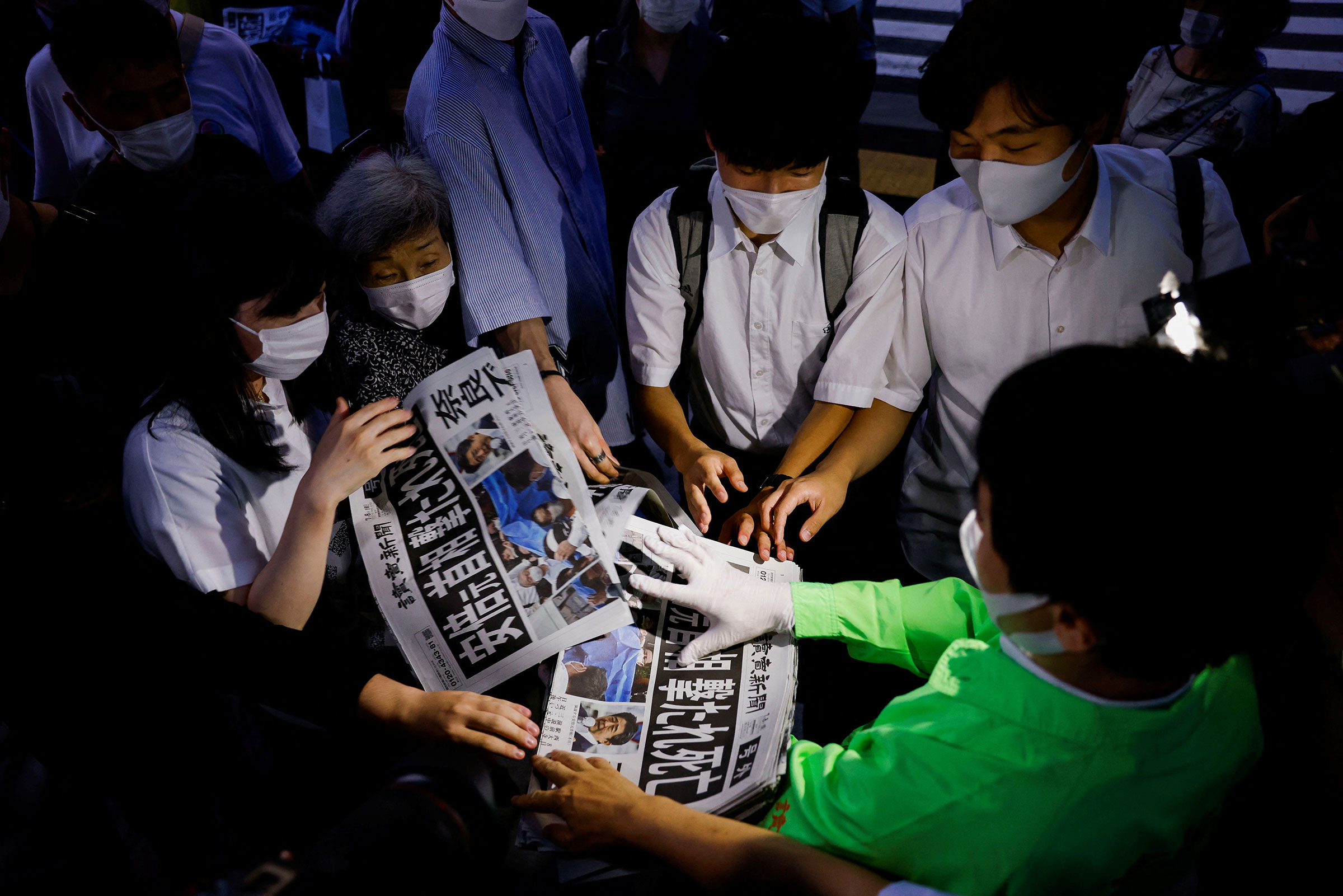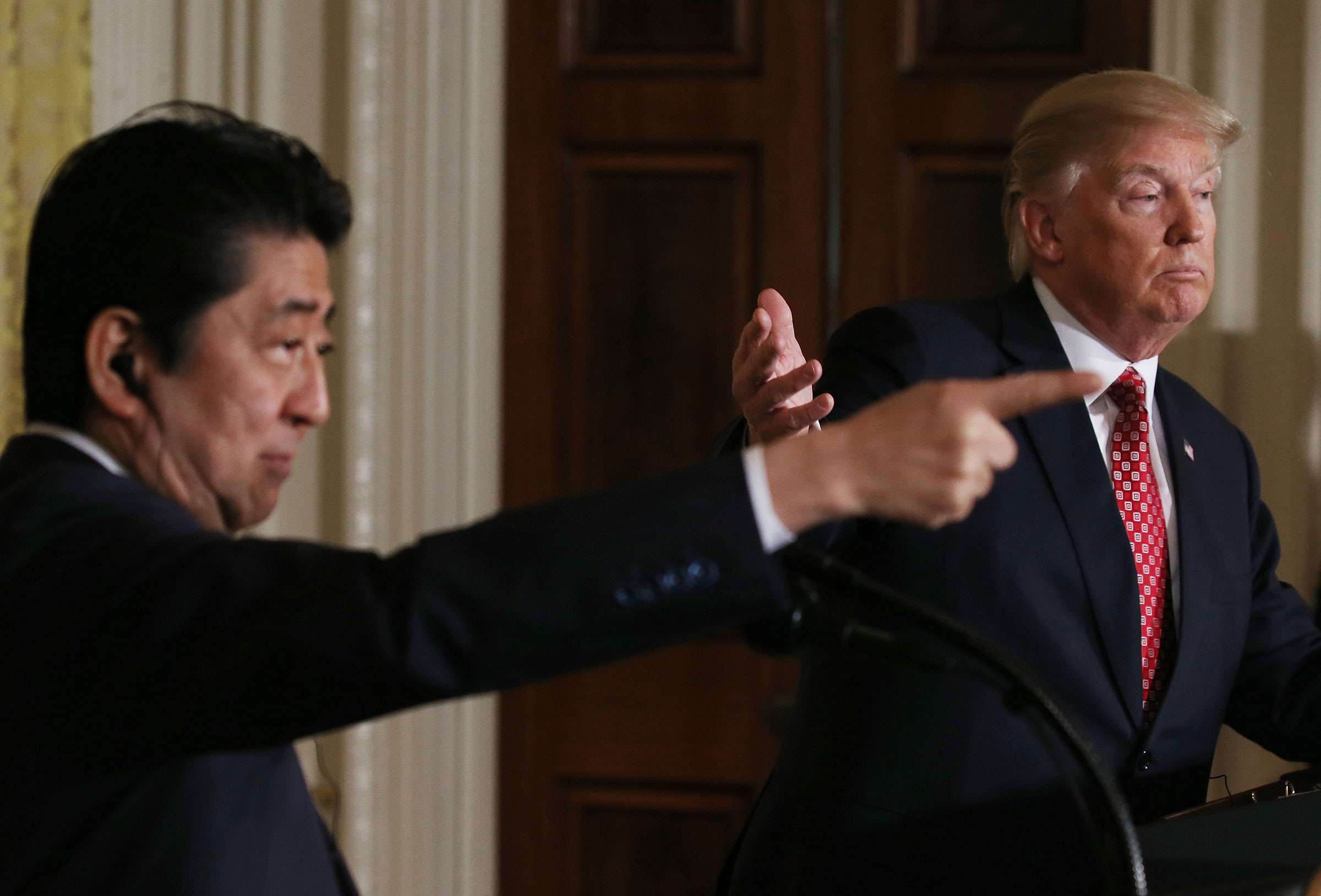On July 8, the world learned that Shinzo Abe, Japan’s former prime minister, had been murdered during a public appearance in the Japanese city of Nara. Though Abe had no current formal role in Japan’s government, he was campaigning on behalf of a local parliamentary candidate who was only too happy to have Japan’s reigning political heavyweight speaking to voters on his behalf.
The shock and horror that follow this news are amplified by its setting. Japan is one of the safest countries in the world. Its gun laws are among the world’s most strict. As the world reads that the United States is home to more guns than people, firearms remain extraordinarily rare in Japan. As of 2020, there were just 192,000 firearm licenses, mainly for hunting rifles, in a country of 128 million people. In 2021, not including accidents or suicide, there were 10 shootings that killed or injured people or damaged property. Just one person was killed.
Read More: Shinzo Abe Rewrote Japan’s Place in the World. And Remained a Power Broker Until the Very End
Shinzo Abe was a remarkable leader, and it’s no accident that he was Japan’s longest-serving prime minister. His charisma, the force of his personality, and his formidable political talent gave him a lasting place in his country’s public imagination. In his first tenure as prime minister (2006-2007), he was Japan’s youngest PM since World War II. In his second (2012-2020), he provided a forceful leadership on the world stage that Japan has not often offered.

His legacy will include both an ambitious domestic reform agenda and a far-sighted foreign policy. The first two arrows of his “Abenomics” economic reform plan, which used a surge in state spending and super-easy monetary policy to try to kickstart Japan’s stagnant economy, produced results that were positive but inconsistent—and the country’s debt increased dramatically. But his third arrow, structural reform, brought more people, particularly young women, into the country’s workforce and eased rules that have sharply restricted entry for migrant workers, as well.
Abe’s forceful foreign policy inspired both national self-confidence in Japan and considerable controversy. He was a strong and unapologetic ally of the United States. He went to extraordinary lengths to overcome protectionist pressures within Japan to support the Obama Administration’s Trans-Pacific Partnership on trade—and took leadership of the plan when American political leaders of both parties renounced it.
His conviction that Japan must play a more forceful political, economic, and even military role in Asia in response to the rapid expansion of China’s regional influence helped pave the way for establishment of the Quadrilateral Security Dialogue, a grouping of the U.S., Japan, India, and Australia that realizes Abe’s call for a “free and open Indo-Pacific strategy.” Here, the strength of the relationship Abe built with India’s Prime Minister Narendra Modi, with whom he shared a deep mistrust of China, was crucial. Even more challenging for Abe was his ever-evolving relationship with Donald Trump, which depended as much on the prime minister’s patience and flexibility as on his personal commitment to U.S.-Japanese ties.

Abe’s push to amend Japan’s pacifist constitution to give Japan a more assertive military role in East Asia provoked controversy both at home and abroad, particularly in China. Though his plan hasn’t yet been realized, current prime minister Fumio Kishida, is still pushing in the same direction.
Read More: How the World Is Reacting to Shinzo Abe’s Death
It’s for that reason that China’s response to Abe’s murder is crucial. The Chinese leadership has expressed shock and sorrow at the assassination, but Chinese officials have so far done little to denounce a surge of celebration and mockery in response to Abe’s death among nationalists active in Chinese social media, including on forums attached to China Central Television.
The good news for Japan is that the country that must now absorb this blow is blessed with a political resilience and sense of national unity that appears in short supply in some other G7 countries. As the U.S. Congress investigates an attempt by a defeated president to launch a coup in Washington, and the sorry spectacle of Boris Johnson’s scandal-plagued premiership limps to its conclusion in the U.K., Japan’s political dignity will continue despite this horror. An outpouring of sympathy will likely boost the Liberal Democratic Party’s standing in upcoming parliamentary elections, strengthening Prime Minister Kishida’s ability to deliver on some of Shinzo Abe’s political and policy goals.
More Must-Reads from TIME
- Cybersecurity Experts Are Sounding the Alarm on DOGE
- Meet the 2025 Women of the Year
- The Harsh Truth About Disability Inclusion
- Why Do More Young Adults Have Cancer?
- Colman Domingo Leads With Radical Love
- How to Get Better at Doing Things Alone
- Michelle Zauner Stares Down the Darkness
Contact us at letters@time.com